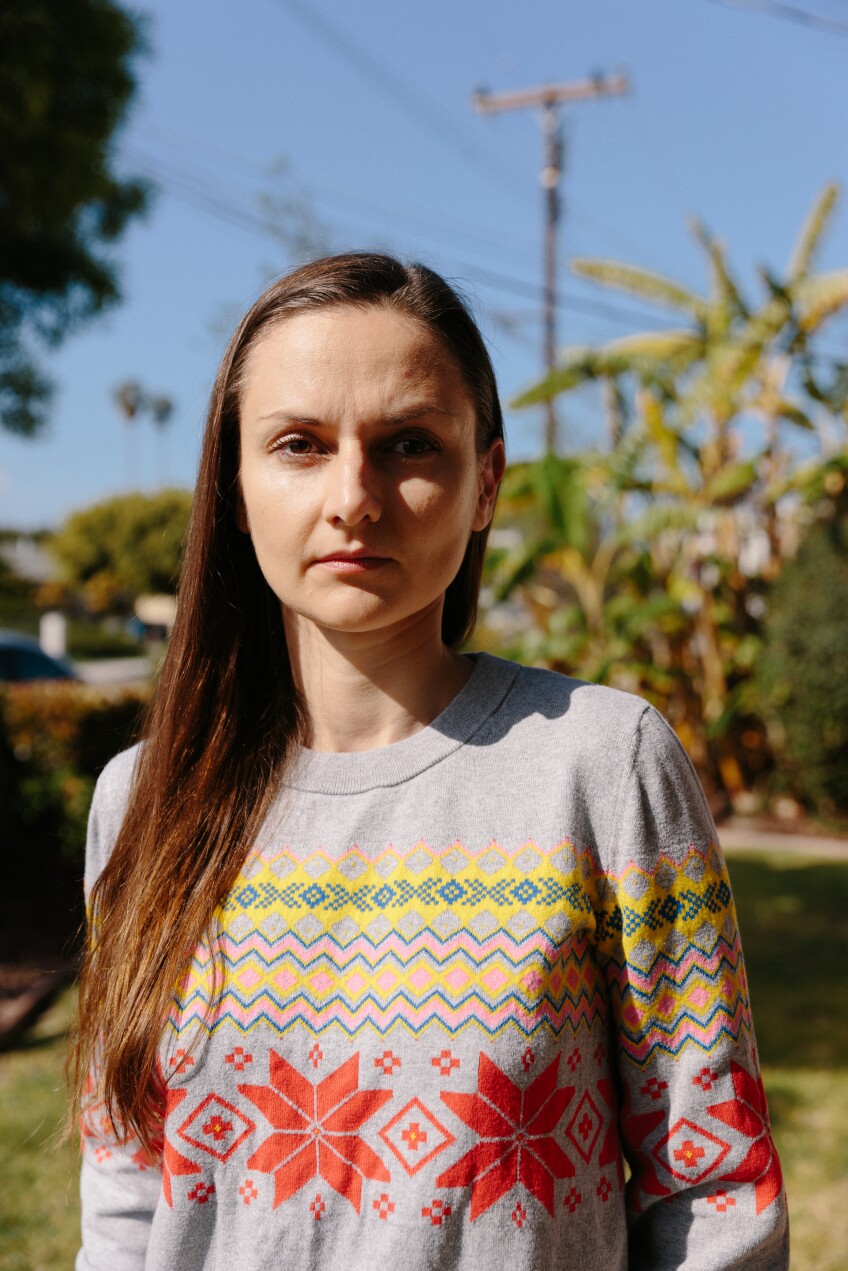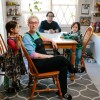Iryna Korotun, 34

Iryna Korotun
Age: 34
Lomita
Thursday, March 10, 2022
I was born in Lviv. My father is from the western part of Ukraine and my mom is from Odessa region. My father speaks Ukrainian, my mom speaks Russian. In our family, we speak both languages, at the same moment. I speak both languages equally well. I lived in Odessa region until I was 17 and then I moved to Kyiv.
In Ukraine, my ex-husband and I both worked for the top TV channels. It was a tough time in Ukraine after Maidan, Crimea, and Donbas. We came to L.A. to try to work in the TV industry here. We made a documentary about wounded Ukrainian soldiers called Rehab. My husband and I later divorced. Now I am married to an amazing woman, which was really hard for my parents to accept. It took them almost a year.
My parents, my grandmas, my uncle, and my cousin are all in a little village in Odessa region right now. My little sister is in Kyiv. She doesn't want to leave. She actually wants to fight and is making Molotov cocktails.
A lot of Russians think that we are like brothers. But the thing is, they don't know that we have our own traditions. For example, my father is from a small city in the Zakarpattia region in the western part of Ukraine, which has a tremendous amount of its own traditions. If we are singing the same popular songs in Russian and we understand the language, that doesn't mean we are the same as Russians. We have a part of us that is completely different.
I love Ukraine, and I love the U.S. I love them differently, but maybe with the same amount of volume. For me, Ukraine is like the roots of the tree. That’s where I’m from, who I am mostly. And the U.S. for me is like the canopy of the tree, who I am now. There cannot be a tree without a canopy or without the roots.
I love Kyiv, as well as Lviv. I miss the Carpathian Mountains, where my relatives and grandparents live; the mountains are a place of power for me. The Carpathian air is completely different from everywhere else in the world. It's kind of like you can drink the air there.
I also love LA; I live here. I was grateful every day even before the war, but now I'm even more grateful. I live the most beautiful life and I feel it with every cell in my body these days.













